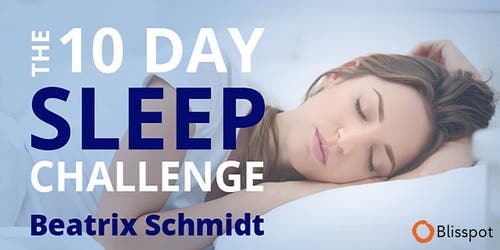The truth about napping and performance
I get asked all the time about napping and what a good general rule is:
- Should we take naps, or should be not be taking them?
- Do they really improve productivity, and how long is a good nap?
When working with clients I like to look at their personal situation. Self-awareness is really important, so today I’d like to give you a few things to take a look at to really help you decide where you are at with your productivity, and if napping might work for you or not.
As with many things about sleep, there is no one rule that fits everybody.
First, let’s look at your nights
Before we look at daytime napping, it’s important to look at your sleep at night. Often when I’m working with a client who naps regularly in the day, as things unfold it turns out that their sleep at night isn’t all that great.
Where professionals have the flexibility in their days to incorporate a nap, this can quickly become a habit.
If you are truly getting enough quality hours of sleep at night then you shouldn’t need to rely on a nap to keep your productivity and energy going. The exception to this would be if you have a medical sleep disorder – but please don’t self diagnose, make sure you speak to your GP.
If you are in the habit of napping, then ask yourself honestly if those naps contribute to you not sleeping so well at night, making it a vicious cycle.
The length of a good nap
There are so many opinions about there in terms of what a healthy length of time for a nap is. However, there isn’t really a magic number. Instead, there is a much bigger picture to look at.
Something I’ve seen with professionals is that naps are being used strategically in order for them to be able to push through a big workload and keep going for longer. Over time this becomes unhealthy.
Consider looking at things from the other angle. If you were not pushing yourself too hard each day then your energy would be more consistent, and you wouldn’t then be caught in a trap of over-working then needing to nap in order to keep going.
Also, think about the factors that support your productivity outside of sleep; good nutrition for example:

Have a consistent schedule
Something I see often is professionals having a tight schedule throughout the weekdays, then on the weekend they are staying up later and sleeping in longer, and perhaps napping during the day too.
What happens then, as you are getting more sleep in the day, you will likely push back getting to sleep that night, changing your routine for Saturday and Sunday.
When Monday comes around you may not have had good quality sleep on Sunday night, so you end up starting the week already tired. This then creates the urge for a nap on Monday, and again we are looking at a cycle.
I advise my clients to keep consistency in their sleep pattern to avoid this whole scenario. Of course, you want to enjoy your weekends, just stay aware of how your weekends affect your Monday.
If you nap better than you sleep…
Something I’ve noticed with some clients who are frustrated by their difficulty getting to sleep at night is that they don’t have the same trouble with getting a nap in during the day. This tends to be about their mindset and how they approach that nap, compared to how they approach their bedtime.
If they go to bed already expecting to have a bad night’s sleep, then their worry tends to set them up for failure. Whereas they don’t put the same pressure on themselves over a daytime nap.
So if you struggle to get to sleep at night due to similar worries about not being able to get to sleep, then you can learn something from this!
I hope you found this helpful. Do leave me a comment and tell me if you currently use naps to boost your productivity, or if you get through the day and sleep better at night when you don’t nap.








